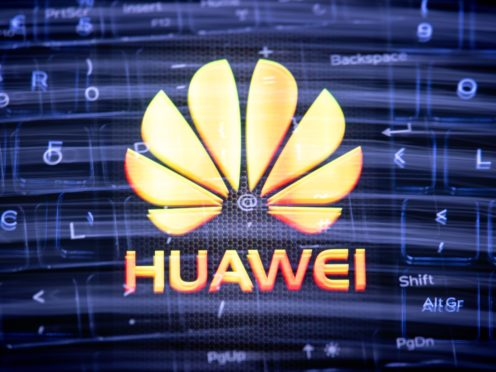Boris Johnson is coming under renewed pressure from key British allies over his controversial decision to give Chinese tech giant Huawei a role in building the UK’s 5G network.
A delegation of senior US officials – including Donald Trump’s acting chief of staff – are set to fly to London to raise their concerns directly with Number 10, according to the Daily Telegraph.
Meanwhile, the Sydney Morning Herald reported that MPs on Australia’s intelligence and security committee have pulled out of a visit to the UK next month following a diplomatic row with Foreign Secretary Dominic Raab.
Mick Mulvaney, who is leading the US delegation, is expected to call on the UK Government to change its decision on Huawei when they meet senior officials on Wednesday.

The Telegraph quoted a source close to the delegation as saying they expected to deliver a “bollocking” to British officials.
“One thing is on the agenda, and it’s not a trade deal – it is Huawei,” the source said.
The visit comes after an “apoplectic” President Trump reportedly vented his fury with Mr Johnson when the Prime Minister telephoned him to explain the UK’s decision last month.
The US has repeatedly warned that it would withhold intelligence-sharing from any ally which allowed Huawei access to its communications networks, which it regards as a national security threat.
The furious row has led to Mr Johnson reportedly delaying a planned visit to Washington which had been expected to take place over the spring.
A Number 10 spokesman insisted on Friday that the Prime Minister is still looking forward to travelling to the US but is “currently focused on driving through the Government’s ambitious domestic agenda”.

American concerns about China were underlined by US Defence Secretary Mark Esper who accused Beijing of stealing Western know-how while using its power to intimidate smaller neighbours.
“The Communist Party and its associated organs, including the People’s Liberation Army, are increasingly operating in theatres outside its borders, including Europe, and seeking advantage by any means, and at any cost,” he said in speech to an international security conference in Munich.
Mr Johnson has faced criticism for downgrading Britain’s presence at the event, with Defence Secretary Ben Wallace and MI6 Chief Alex Younger pulling out and newly-appointed Foreign Office Minister James Cleverly attending instead.
Meanwhile, the Sydney Morning Herald said the Australian intelligence and security committee had abruptly called off its visit next month when members had been expected meet their UK counterparts as well as senior intelligence and security figures.
The paper said the cancellation followed a letter from a senior Australian civil servant to committee chairman Andrew Hastie, rebuking him over a leak of details of a meeting with Mr Raab when MPs on the committee confronted him over the Huawei decision.
Australia – which, like the US, is part of the Five Eyes intelligence-sharing alliance – has banned the Chinese firm from its 5G network because of the potential national security implications.
The chairman of the Commons Foreign Affairs Committee, Tom Tugendhat, said the British Government should take such concerns seriously, saying the country faces some “really serious strategic choices” when it comes to China.
“Personally, I would like to stand with countries that share the rule of law, human rights and the values I think are so important,” he told BBC Radio 4’s Today programme.
“That means standing with Australia and Canada. It also means standing with countries like France who have also rejected Huawei.
“The decisions we make today will affect how our children are governed in years to come.”
Tory MP Bob Seely, who was a member of the Foreign Affairs Committee in the last parliament, said the role of Huawei should form part of the Government’s forthcoming foreign policy and defence review.
“Having hi-tech from high-risk vendors in our critical national infrastructure is wrong on many levels – national security, personal data, Chinese leverage over the UK Government,” he said.
“The Aussies gave a very blunt opinion to the UK. The UK Government should be listening to the message our allies are giving, not moaning that they are giving it.”
A Government spokesman said: “We are clear-eyed about the challenge posed by Huawei, which is why we are banning them from sensitive and critical parts of the network and setting a strict 35% cap on market share.
“Our world-leading cyber security experts are satisfied that with our approach, and tough regulatory regime, any risk can be safely managed.”
